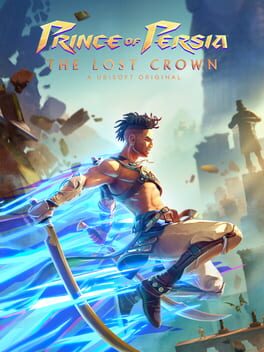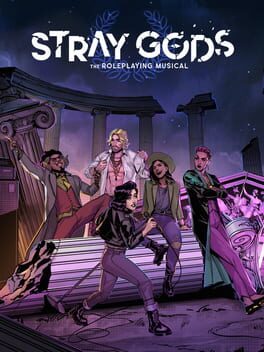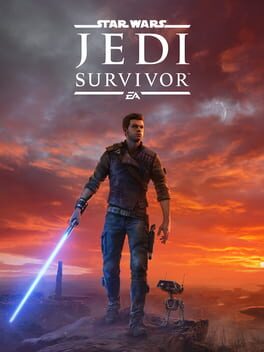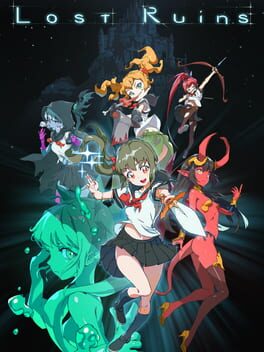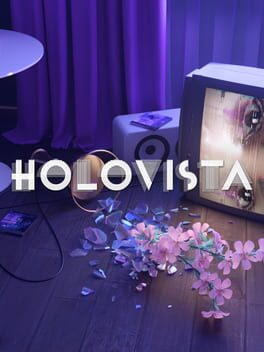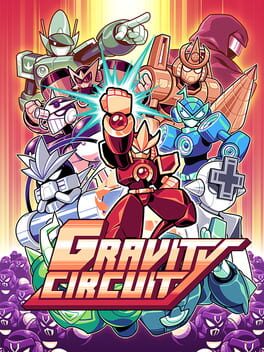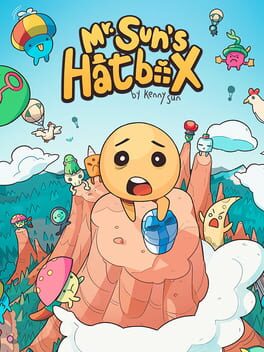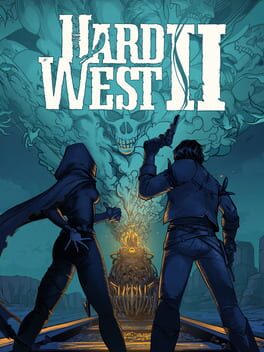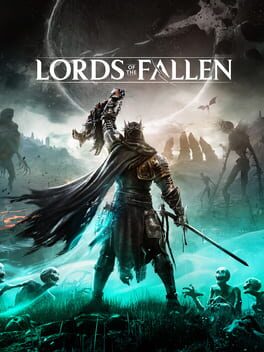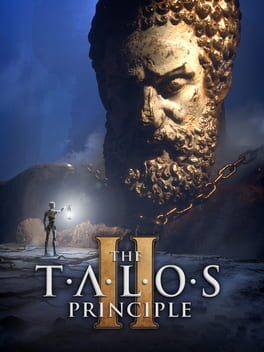mjoshua
Phenomenal metroidvania for the first two thirds. Loses a lot of the magic and excitement for the cleanup because it’s a bit bloated. But the Persian cultural contribution is next level: must play in Farsi. Oh I’ll bump it up a notch because the combat was legitimately excellent, even if it underutilizes the object displacement power. Nowhere near as good as Hollow Knight, but this is an insanely wondrous gift from Ubisoft on high. And I hope they keep doing this kind of AA game.
2022
This puts Korea on the map as an Nintendo-grade game development scene. I sincerely can’t think of another game that so effectively captures youthful joy and mechanical excellence. A true RPG, even if one you didn’t realize was a sweeping epic until credits. Might linger around and clean up the last quarter of achievements.
I have Neil Gaiman’s American Gods / Sandman series to compare this game’s script to (since Sandman dealt directly with Calliope and Orpheus in far more tragic (and artful terms), but it’s an unfair comparison because Stray Gods pales so desperately in comparison.
The script wasn't terrible, but it lacked heartfelt magic apart from that first auditorium scene.
The same goes for this soundtrack. Like seriously, way to phone it in, Austin Wintory. Maybe he had his hands tied by the script and the executive direction on this game, but jeez. This is a shitty musical.
Like by any standard, the music isn’t harmonically cohesive or catchy. And Laura Bailey seems like the only one trying, with nobody else keeping up. The first song feels like the magic musical moment in Act 3 of Kentucky Route Zero where the roof comes off and you’re transported to this other world of music. But every other song in this game feels like it’s trying to get back there and floundering. It would be unbearable on stage live.
I don’t fault the cast, but I do think the problem is that this game feels cast forward, art second, script a distant third, and gameplay forgotten in the shuffle. This is not a role playing game: it’s just a visual novel. And as a visual novel, it’s fine. It’s just vastly inferior to its peers in adjacent media of literature and musicals.
As a video game, it looks good. But there’s no immersion with the characters. Scenes just play — and you pick the emotional tone of the response. And maybe you flirt a little bit (which feels forced). Don’t get me wrong, I love visual novels and the premise of present day gods who use glamours to hide their presence. I liked Wolf Among Us, too. But unfortunately even that script was much stronger, even as a nerfed adaptation of the Fables comics.
Please forgive my dour review. If I never read, attended a musical play, or played anything like Stray Gods, I’d be swooning right now. So please know I like this premise and it’s illustrated art, but I’d advise checking out American Gods full-cast audiobook if you liked this game and find my review offputting.
P.S.,
I had a shit ton of bugs in this game that really hindered my enjoyment of it, too. Super rough for a game 6 months after release.
The script wasn't terrible, but it lacked heartfelt magic apart from that first auditorium scene.
The same goes for this soundtrack. Like seriously, way to phone it in, Austin Wintory. Maybe he had his hands tied by the script and the executive direction on this game, but jeez. This is a shitty musical.
Like by any standard, the music isn’t harmonically cohesive or catchy. And Laura Bailey seems like the only one trying, with nobody else keeping up. The first song feels like the magic musical moment in Act 3 of Kentucky Route Zero where the roof comes off and you’re transported to this other world of music. But every other song in this game feels like it’s trying to get back there and floundering. It would be unbearable on stage live.
I don’t fault the cast, but I do think the problem is that this game feels cast forward, art second, script a distant third, and gameplay forgotten in the shuffle. This is not a role playing game: it’s just a visual novel. And as a visual novel, it’s fine. It’s just vastly inferior to its peers in adjacent media of literature and musicals.
As a video game, it looks good. But there’s no immersion with the characters. Scenes just play — and you pick the emotional tone of the response. And maybe you flirt a little bit (which feels forced). Don’t get me wrong, I love visual novels and the premise of present day gods who use glamours to hide their presence. I liked Wolf Among Us, too. But unfortunately even that script was much stronger, even as a nerfed adaptation of the Fables comics.
Please forgive my dour review. If I never read, attended a musical play, or played anything like Stray Gods, I’d be swooning right now. So please know I like this premise and it’s illustrated art, but I’d advise checking out American Gods full-cast audiobook if you liked this game and find my review offputting.
P.S.,
I had a shit ton of bugs in this game that really hindered my enjoyment of it, too. Super rough for a game 6 months after release.
2021
2020
2023
2023
I'm absolutely blown away. Mr. Sun's Hatbox is this incredibly deep stealth playground was made by a solo dev. Explains why he put his name on the box.
Think of Metal Gear Solid V's immersive-sim stealth mechanics: sneaking missions with lots of tools, balloon-extraction of knocked-out enemies, mission rewards for no-alarms and no-kills, and a base full of everything you carried home or balloon-extracted. Now add the silly physics of Duck Game, where there's tools like slippery banana peels and accidental deaths!
So, I went to beat a guy with a baguette, and didn't realize he was next to a red barrel. Suddenly everything starts exploding and out-of-nowhere I'm hit with, "Mission Complete!" Confused on how I won, I just started laughing. It took me almost a minute until I realized all I had to do was "neutralize my target," because my sneaky agents are completely expendable.
Similarly, I'll never forget the mission where I had to kill my target, but I couldn't be cause my agent's "spindly arms" weren't strong enough to snap the enemy's neck — nor were there any lethal weapons in the room. Fortunately, I had a support unit lined-up to join the mission in case that guy died, so I let him get killed, let the neck-snapper at it, and boom, we win. Teamwork!
Ever since falling in love with immersive sims like Deus Ex, Prey, and Metal Gear Solid V, I've always wondered if these kinds of systems could translate to a smaller-budget indie game.
Kenny Sun answered this question with incredible gusto. I'm gonna go dig around and see if he's made anything else, and I can't wait to see what he does next.
Think of Metal Gear Solid V's immersive-sim stealth mechanics: sneaking missions with lots of tools, balloon-extraction of knocked-out enemies, mission rewards for no-alarms and no-kills, and a base full of everything you carried home or balloon-extracted. Now add the silly physics of Duck Game, where there's tools like slippery banana peels and accidental deaths!
So, I went to beat a guy with a baguette, and didn't realize he was next to a red barrel. Suddenly everything starts exploding and out-of-nowhere I'm hit with, "Mission Complete!" Confused on how I won, I just started laughing. It took me almost a minute until I realized all I had to do was "neutralize my target," because my sneaky agents are completely expendable.
Similarly, I'll never forget the mission where I had to kill my target, but I couldn't be cause my agent's "spindly arms" weren't strong enough to snap the enemy's neck — nor were there any lethal weapons in the room. Fortunately, I had a support unit lined-up to join the mission in case that guy died, so I let him get killed, let the neck-snapper at it, and boom, we win. Teamwork!
Ever since falling in love with immersive sims like Deus Ex, Prey, and Metal Gear Solid V, I've always wondered if these kinds of systems could translate to a smaller-budget indie game.
Kenny Sun answered this question with incredible gusto. I'm gonna go dig around and see if he's made anything else, and I can't wait to see what he does next.
2023
2022
I burnt-out on tactical RPGs years ago and couldn't get back into the genre for years. Then this game came along and set me entirely on fire — not just for the incredible Bravado system — but tactical RPGs as a whole. This game was so incredibly good, I still feel insane for how much I loved it. Like, really? Just me who thinks the chase / train levels are genius? Just me who thinks that the Bravado death-chains reinvent the whole genre?!? Oh well. Lock me in an asylum and throw away the key. This game made me absolutely gaga.
2023
2023
My favorite thing a single-player game can do is make me feel like I’m not alone. It makes me feel like I’m in a community — where others care about me — and we make each others’ lives better. This is the opposite of what I expected from The Talos Principle 2, and I don’t think I’ll be able to stop thinking about how it makes me feel more connected to humanity as a whole.
I just finished this thirty-hour puzzle game that blew-away any expectation I could have had for it.
I could have had my opinion colored on this as a part of the publishing team, yet my heart is clear on this: the Talos Principle 2 is a grand achievement for game design, full stop.
I just finished this thirty-hour puzzle game that blew-away any expectation I could have had for it.
I could have had my opinion colored on this as a part of the publishing team, yet my heart is clear on this: the Talos Principle 2 is a grand achievement for game design, full stop.
2023
Super thankful for Alan Wake 2, even if I didn’t enjoy it as much as I wanted to. Playing as Saga Anderson l was a real treat grounded in her own curiosity, but I didn’t enjoy feeling trapped in Alan Wake’s self-obsessed nightmare. That’s funny because most of my favorite games, comics, and shows center on scary dream-fiction with timeloops. But the half of Alan Wake 2 where you play as Alan Wake just wasn’t outward-looking enough for it to be fun to navigate. Nevertheless, I still want an Oh Deer Diner thermos bottle. So I guess I still liked it enough.
It’s bad review formatting but I’ll leave this with a huge gripe of mine I about the exploration rewards: cult stashes required you to discover them, solve an environmental puzzle, and then return to them to unlock. But the rewards were always basic resources like trauma kit and batteries. But the no-work discovery of lunchboxes were where Saga earned her gun upgrades. Remedy should have rewarded player’s effort with more meaningful upgrades and left the lunchboxes for less remarkable rewards.
I lied, I’ll end this on a positive: The clutch redemptive quality of Alan’s half of the game was his Old Gods of Asgard showpiece sequence.
It’s bad review formatting but I’ll leave this with a huge gripe of mine I about the exploration rewards: cult stashes required you to discover them, solve an environmental puzzle, and then return to them to unlock. But the rewards were always basic resources like trauma kit and batteries. But the no-work discovery of lunchboxes were where Saga earned her gun upgrades. Remedy should have rewarded player’s effort with more meaningful upgrades and left the lunchboxes for less remarkable rewards.
I lied, I’ll end this on a positive: The clutch redemptive quality of Alan’s half of the game was his Old Gods of Asgard showpiece sequence.
